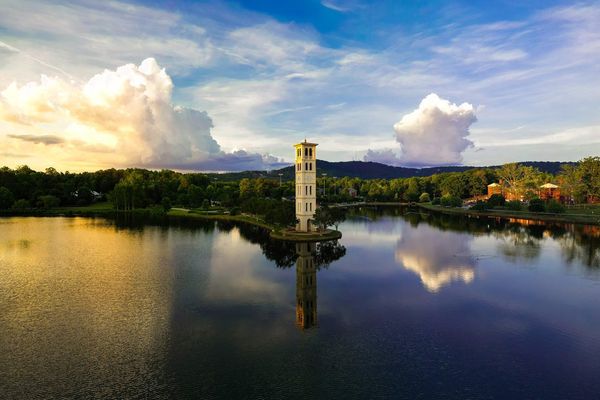This past summer, we experienced some of the hottest temperatures ever recorded. Wildfires ravaged Canada. California saw its first hurricane in sixty years. Scientists say that we are in the middle of a mass extinction event. What we do at Furman can help solve the crisis, but only if it takes into account – and actively fights against – the system which caused it: capitalism.
We are in the midst of an ecological crisis, and all the while, gross domestic product (GDP), whose increase has been repeatedly linked to carbon emissions and material extraction, continues to grow with the full backing of corporate interest in nations like the US. Why is this? Fanning et al. (2021) show that GDP continues to grow despite all signs pointing to societal and environmental collapse because of the prevailing economic system: capitalism. Capitalism lives off growth, and without growth, capitalism falls into crisis, according to Kallis et al. 2018.
First, it is clear that we must stop economic growth – we must degrow. Degrowth is a movement which calls for reducing our material consumption while redirecting existing material use towards human needs and flourishing. This is incompatible with capitalism. Under capitalism, what little material is left is being consumed by the people who already can meet their basic needs and more – in short, the capitalist class. On top of this, Hickel et al. asserted in the journal “Global Environmental Change” that multinational corporations drain the Global South of economic resources all while paying their workers pitiful wages and forcing them to work in pitiful conditions. Under capitalism, cost-cutting is the name of the game – the less you have to compensate workers and the environment, the higher the profits and the more “entrepreneurial success.”
So how do we achieve equitable degrowth? This can only be achieved through a democratically planned economy.
A democratic economy – because it is controlled by the input of human beings, rather than price signals – allows for things to be produced for concrete needs rather than abstract money-values and profit margins. Degrowth requires placing money at the bottom of the hierarchy of these values. The goal of this would be to redesign our economy to be able to thrive within biophysical limits and reprioritize what we value: cherishing human health and prosperity over unneeded material.
In order for this to work, there needs to be a collective transformative social change, and it starts with the transgressors that are leading in consumptive practices and ideas.
Higher education is among these transgressors. Furman University claims to want to create a Climate Action Plan to mitigate their carbon footprint. But how much of this is genuine commitment, and how much is hand-waving?
Biodiversity is a critical factor of the climate crisis that is creating cascading effects around the globe. Furman itself contributes to this ongoing emergency through our useless landscaping endeavors. Our notion of keeping our lawns pristine and well-kept is an extractivist and harmful practice that must be stopped. Lawn-mowers are among the leading engines that emit carbon, and implementing mono-culture practices (such as using non-native grass species all over campus) have detrimental alterations on the ecosystems of Furman. Using a non-native, invasive grass species forces out the native animals and plants that help our ecosystem thrive – and all of this is to grow the profits of private shareholders who insist that more money is more important than the environment.
Ideas like degrowth and a democratically planned economy are massive changes to the way we are currently operating. It may seem like too tall of a task for any of us to try to accomplish. As college students, it probably is. But what we can do is lay the groundwork for something bigger. Right now, and right here at Furman, we can start the process of changing the damaging system that is destroying our Earth. To be able to eventually stop growth across our whole economic system, we must do something to stop growth where we can, at Furman, by living up to our sustainability initiatives and stopping the practice of manicuring our green spaces.
To induce even greater change, we should establish a democratically elected committee of students, faculty, and staff to oversee our ecological impact in the effort of enforcing our next Climate Action Plan. We are advocating for the disclosing of Furman’s financial investments, and the divestment of funds from the fossil fuel industry. We are advocating for wide reform of the landscaping of our campus, moving from a country club style of landscaping to that of a national park by incorporating native plants and allowing the environment to exist as it has historically.
Unless we start making significant changes, we as a species are doomed to become extinct. Join us in the fight against the systems racing us toward that reality.
